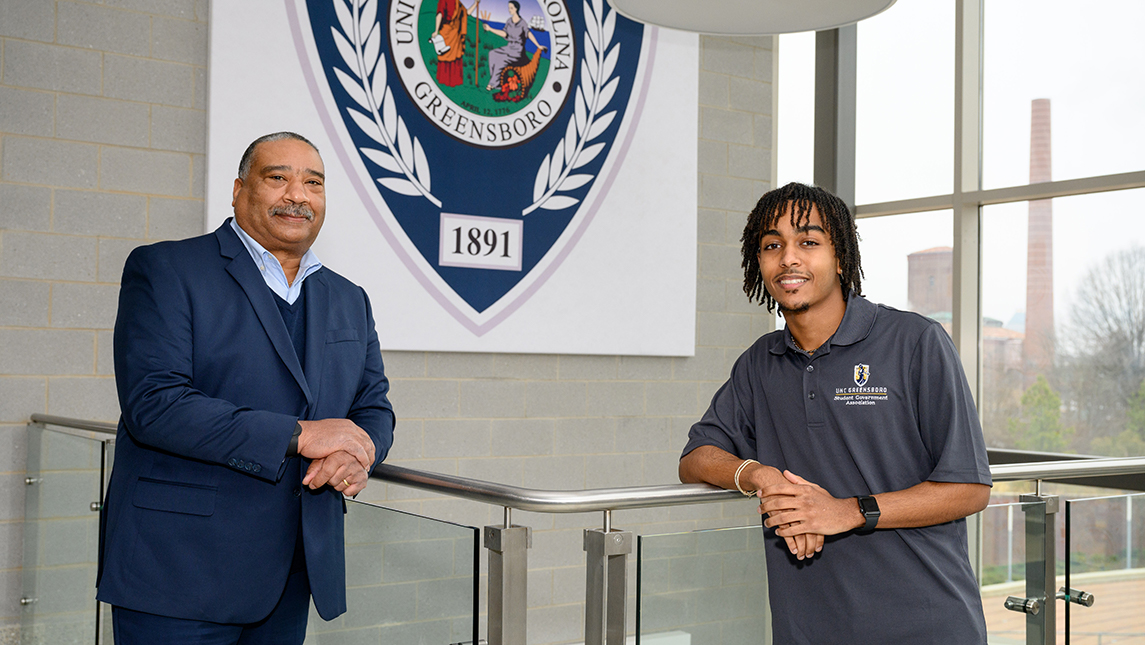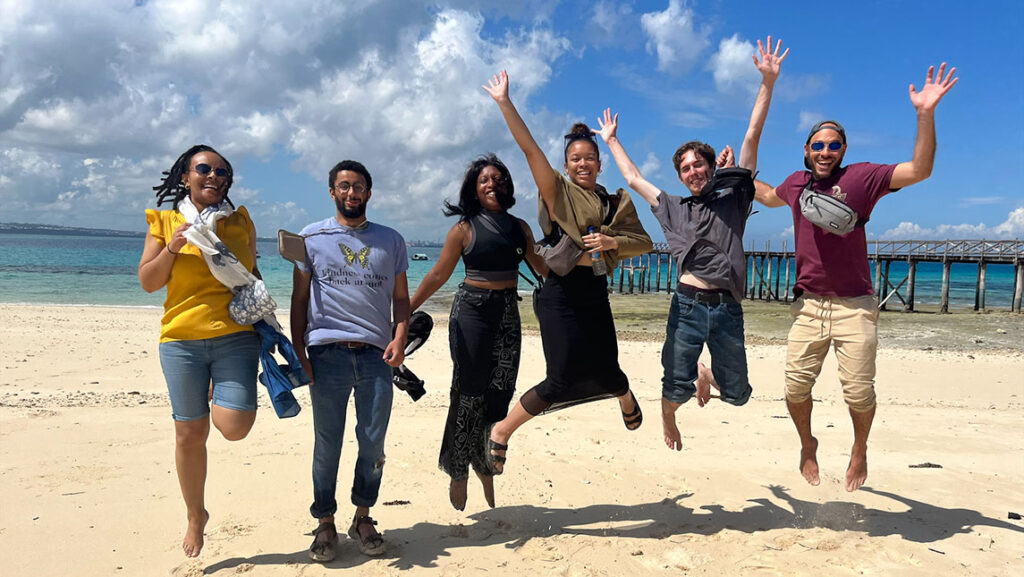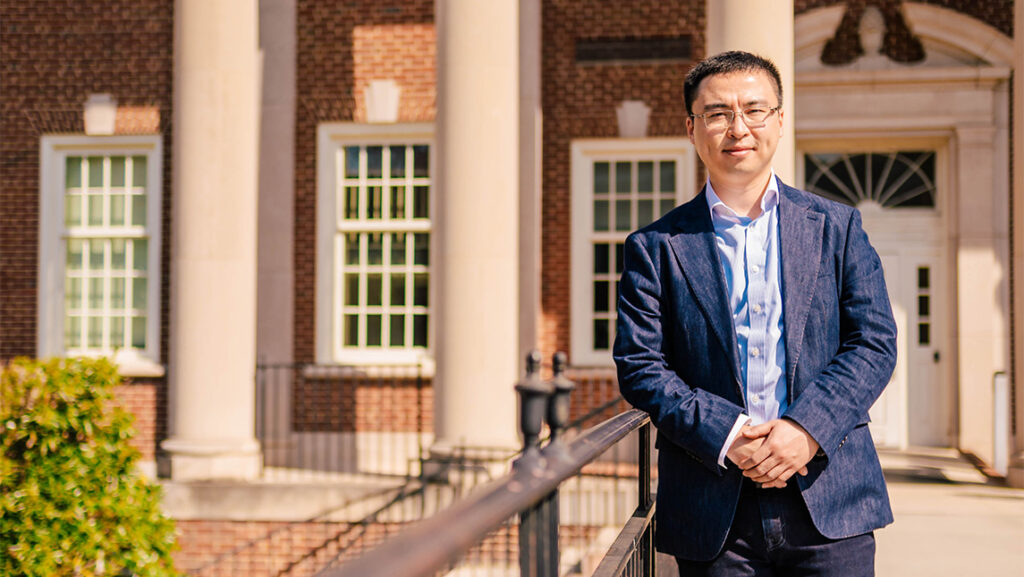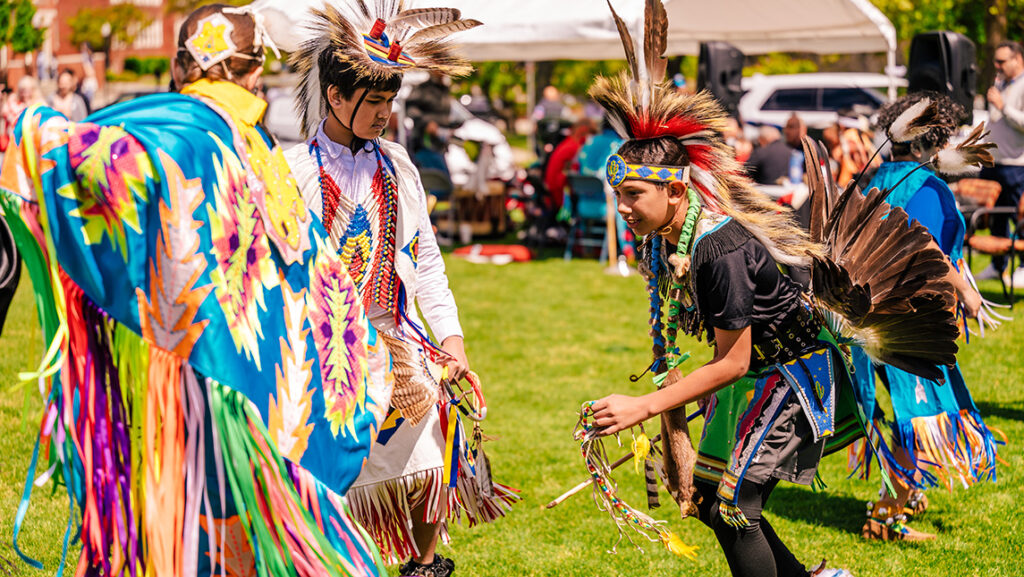
In January, the campus community welcomed Eric S. Boyce as the UNCG Police Department’s new chief of police.
Boyce came to UNC Greensboro from UNC Asheville, where he served as Chief of Police for 11 years. He previously held campus law enforcement leadership roles at UNC School of the Arts and Wake Forest University. A North Carolina native, Boyce earned a B.A. in Political Science/Public Administration from Winston-Salem State University and a M.S. in Public Administration from Appalachian State University.
Student Government Association President Hazael Mengesha sat down with Chief Boyce to learn more about his career, his inspirations, and his goals.
What drew you to this position at UNCG? What are some things that you’ve enjoyed so far?
What drew my interest to UNC Greensboro is just the school itself and that it’s a minority-serving institution. I was in Winston-Salem from 1987 to 2010, so when I saw this position open, I was interested in getting back to the area. Unfortunately with COVID-19, I haven’t gotten to fully enjoy everything Greensboro has to offer, but I’ve enjoyed immersing myself in the police department and being on campus. One thing I’m really looking forward to being able to enjoy is the Tanger Center. “Hamilton” is going to be there in April, and that new venue is exciting to me. I can’t wait to take my family there.
What is something that you would want students to know about yourself?
That I’m approachable. I enjoy interacting with the students, but I’ll give you space to interact in your own way and in your own time. I enjoy listening and learning about students and their experiences. If they’re good experiences, I want to celebrate your successes. And if there are ways that we can help each other, I want to also participate in that.
If you weren’t a police chief or in this line of work, what would you have been?
I probably would’ve been a coach. I enjoy sports, and I played football in high school and college. I was a linebacker at Winston-Salem State University.
I look up to people like you, Chancellor Gilliam, and other Black men in leadership positions. Do you have any advice for people in my generation that are in leadership positions, especially younger Black men?
Have a moment of reflection every day to think about what you’ve done – what went well and what you could have done differently. In those moments of reflection, it’ll help you understand yourself, learn from your mistakes, and get out of the habit of doing the same thing over and over again. Also, be open to conversations, and understand that you can benefit from different perspectives. It’s also important to be able to admit when we make the wrong decision or a mistake. “I’m sorry” goes a long way, and acknowledging that people’s feelings matter is important.
Are there any historical Black figures that you look up to that people may not have heard of before?
One historical figure that I look up to that people may not have heard of is Chief Burtell M. Jefferson, the first African American chief of police in Washington, D.C. Since his leadership, there have been many more African American chiefs of police across the country. He became chief during a time when Black officers weren’t even allowed to wear uniforms when they were promoted. He held these clandestine study laboratories where he would help aspiring African Americans prepare themselves for the promotional process. So that would be a figure that’s not known to many, but in my profession, someone that I’ve looked up to.
As an African American chief of police, what are some ways you’re working to mend the trust and relationship between the Black community and the police department?
By prioritizing empathy – the first thing is to empathize with people’s situation. It’s important to understand that not everybody that commits a crime is a criminal. I like to approach situations from the perspective of getting a person through a tough situation. Sometimes it requires that law enforcement does its role, or we have to offer some sort of assistance to the person, but oftentimes, good people find themselves in bad situations, and we just have to make sure we humanize that. As a police officer, we’re dealing with a human being who has had human experiences just like you and me, and we have to treat people with respect and dignity at all times, regardless of what they may have done. Police officers are in one of the very few professions where we can control life and liberty, either by the use of force or by taking somebody into custody. And we have to hold that and ourselves to a much higher standard. We can’t make mistakes if at all possible, because somebody’s life can be affected in the most impactful way. We have to be mindful that we don’t have room for error.
Hearing you say these things is refreshing for a young Black person like myself. And in the conversations that I’ve had with other members of the UNCG Police Department, I can tell that you all prioritize empathy and are in touch with my generation’s concerns. What are some qualities, values, and beliefs that you see within my generation that make you hopeful for the future?
I admire your generation’s inquiry into knowing what’s going on and not just accepting the status quo. In my generation, if somebody told you to do something, you just blindly did it. One of the refreshing things about your generation is you question things and ask for explanations. I really like that about your generation – that you’re always searching for the “why” and for a different way to do something – challenging the establishment and the norms. I’ve been in this world for half a century, and there have always been situations where folks have protested about the police and the misuse of police powers. But I don’t think there’s been a movement since the civil rights era that has been comparable until now with the Black Lives Matter movement, which in many ways parallels the magnitude of the civil rights movement of 1964. I think that’s something that this generation has accomplished – making that stamp on civil rights in this country where you could be pitched in the history books alongside the civil rights movement.
What is one goal you have for your time here at UNCG?
I want to build the relationship between the police department and the campus community. I want to make sure marginalized communities know that we’re here for you and we want to hear from you. We’ve got some work to do, particularly after the last couple of years, but we’re committed to doing the work and making sure that we mend those relationships. I want students to know that the police are a resource and we’re here for you. We want to be seen as integral parts of this community and initiate non-enforcement interactions with students where we can talk and learn from each other as human beings. I want to do a better job of telling our story and allowing students to get to know who we are behind the badge.
Photography by Martin W. Kane, University Communications


